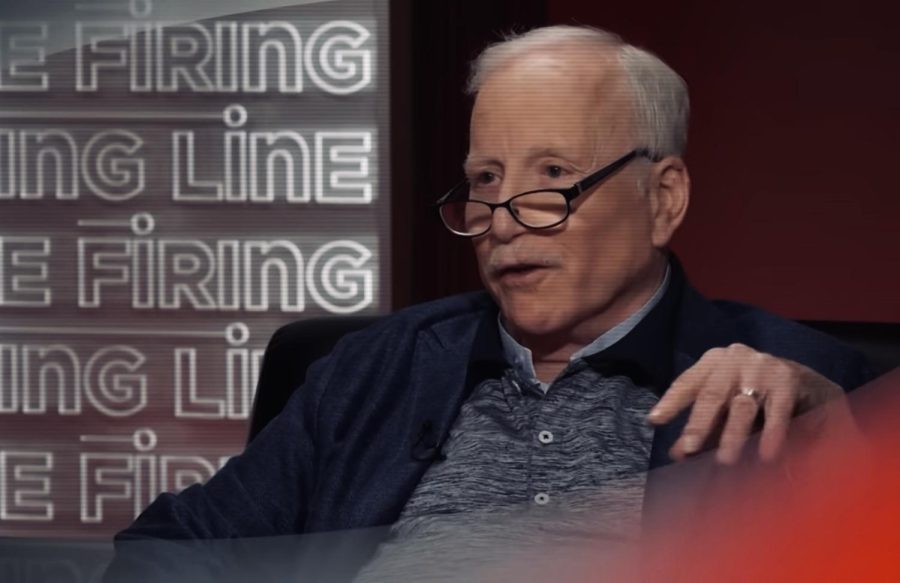Hollywood has a long history of promoting diversity and equality in its industry, from highlighting the struggles of women and underrepresented groups in their films, to pushing for social movements like Me Too and Black Lives Matter. However, recently, the comments of one individual have set back years of inclusion efforts.
Award winning actor Richard Dreyfuss is causing controversy in the film world due to an interview where he claimed the Oscars’ new diversity rules are disrespectful and limiting to artists, despite the fact that they were implemented in order to provide more opportunities to marginalized people in Hollywood.
Dreyfuss, famous for his roles in “Jaws” and “Close Encounters of the Third Kind,” made an interview appearance with Margaret Hoover on PBS. One of the many topics of conversation was the new Oscars’ diversity requirements, which Dreyfuss criticized, claiming that they were attempting to limit the art of filmmaking.
“It’s an art. No one should be telling me as an artist that I have to give in to the latest, most current idea of what morality is. What are we risking? Are we really risking hurting people’s feelings? You can’t legislate that,” Dreyfuss said. “You have to let life be life. I’m sorry, I don’t think there is a minority or majority in the country that has to be catered to like that.”
He then went on to defend the 1965 film version of “Othello,” in which the principal actor wore blackface to portray Othello, the moor. “He played a Black man brilliantly. Am I being told that I will never have a chance to play a Black man? Is someone else being told that if they’re not Jewish, they shouldn’t play [in] ‘The Merchant of Venice’? Are we crazy?” Dreyfuss stated. “This is so patronizing. It’s so thoughtless and treating people like children.”
In 2020, new diversity requirements were implemented by the Academy of Motion Picture Arts and Sciences for the 2024 Oscars ceremony, stating that a movie must adhere to certain guidelines in order to be considered for Best Picture. Films must meet at least two of the four requirements, which include on screen representation, creative leadership, industry opportunities and audience development.
Each of these requirements has multiple boxes that must be checked in order to qualify for Best Picture. For instance, the requirement labeled on screen representation must have a certain percentage of the actors or the ensemble representing marginalized groups, or have the storyline revolve around the struggles and discrimination that these communities face.
Requirements like these work to correct the inherent limitations for minority groups in the film industry, such as people of color, women and LGBTQ+ individuals. The opportunities available to people belonging to minority groups in Hollywood have been severely limited due to the systemic biases in the United States that work against them, and the Academy is finally taking a much needed step to correct this.
In addition to the utterly insensitive nature that Dreyfuss revealed in defending an actor using blackface, it’s clear that he is in the wrong for condemning these new requirements. They work to level the playing field and allow more opportunities to be given to people who are usually targets of discrimination in the film industry.
As a straight, white man, Dreyfuss has never experienced the discrimination that affects the lives of marginalized people every day, both in the film industry and beyond.
The inequality is even more apparent when comparing the ratios of currently employed actors. Currently in the United States, 67.5% of professionally employed actors are men, while only 32.5% are women. On top of that, in 2021, female actors only made 95 cents for every one dollar of their male counterparts, making up a disparity of nearly $3,000 per year.
And it’s not only women who are discriminated against. 57% of employed actors are white, with only 13.2% of actors in the industry representing African Americans. Additionally, only 19% of currently employed actors identify as LGBTQ+.
Clearly, there is a major lack of representation in the film industry, in terms of both actors and storylines. This is why the Oscars rules were put in place, as they provide an incentive for big movie studios to hire people of disadvantaged and marginalized identities.
What Dreyfuss fails to understand is that hiring people targeted by discrimination does not “limit” the art of filmmaking in any way, but instead provides a level playing field in the film industry for everyone, regardless of factors like race, gender or sexual identity.
The Academy has even taken historical pictures into account, as there is an option that states that even if no marginalized groups are represented on screen, the crew and promotional materials can still be a form of representation. In reality, hiring minorities to serve on the cast or crew does not “limit” the art of filmmaking, but actually makes it more realistic, reflecting the many identities that exist outside of white America.
Dreyfuss’s wildly insensitive comments are reflective of a bygone era in which Hollywood was saturated with white, straight males. The Academy is working to change that stigma and promote diversity within film, which more accurately reflects our world today and provides much needed opportunities to disadvantaged groups of people.
Filmmaking is an art form that everyone should be able to participate in, whether as a director, actor, or audience member. Movies should not be limited to the stories of privileged white men, but should reflect the true, diverse America that we live in today.









